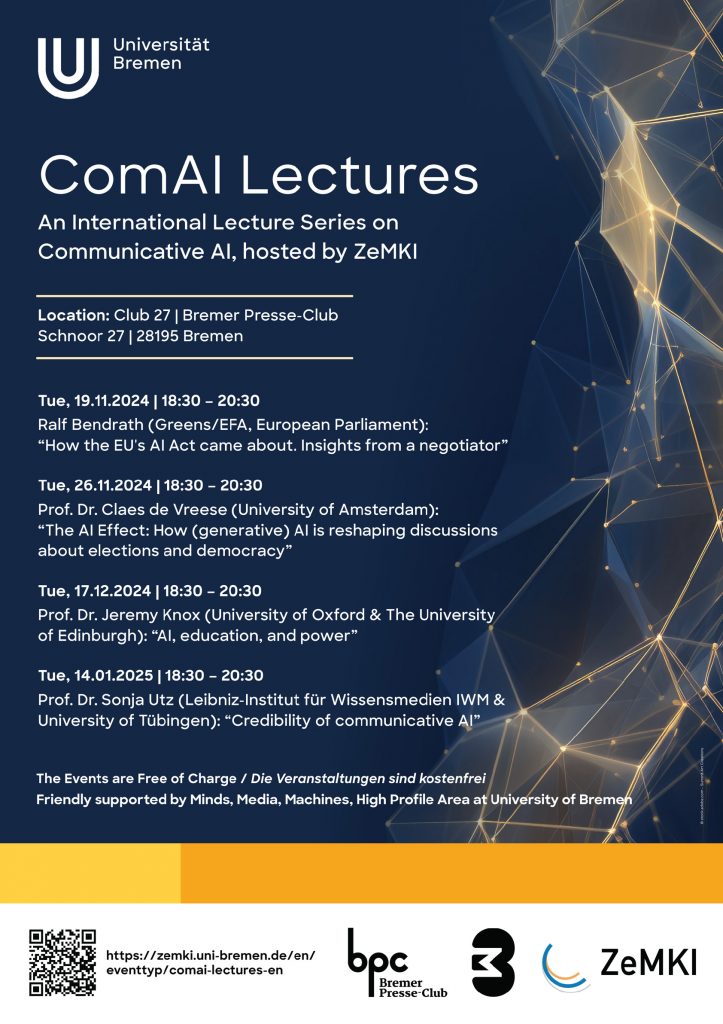Prof. Dr. Mike S. Schäfer (University of Zürich)
Abstract
Generative AI – producing novel outputs based on extensive digital data and human training – is changing public communication profoundly. Citizens and communication professionals use it to communicate about political and economic topics, healthcare, technology and other issues, with potentially far-reaching implications. Scholars and pundits have discussed how this might impact public communication about science: On the one hand, GenAI can support science communication practitioners in generating content or identifying new ideas and trends, preparing scientific results and publications for different channels and audiences, and enabling interactive, dialogical exchanges with various user groups. On the other hand, GenAI is feared to present science inaccurately, to contain biases towards certain scientific fields and to deepen digital divides. Researchers have started to analyze these implications of AI for science communication in recent years. The lecture provides an overview of this research. It presents how science communicators and journalists employ GenAI, how tools like ChatGPT present science, how citizens use GenAI to inform themselves about science, and what effects this has.
Bio
Mike S. Schäfer (Universität Zürich) is Full Professor of Science Communication and Head of Department at IKMZ – Department of Communication and Media Research of the University of Zurich. He is also Director of the university’s Center of Higher Education and Science Studies (CHESS) and PI of the Swiss Science Barometer. Schäfer’s work focuses on public communication and public perceptions of science and technology, particularly around issues AI and climate change, as well as on science-related populism and conspiracy theories.

